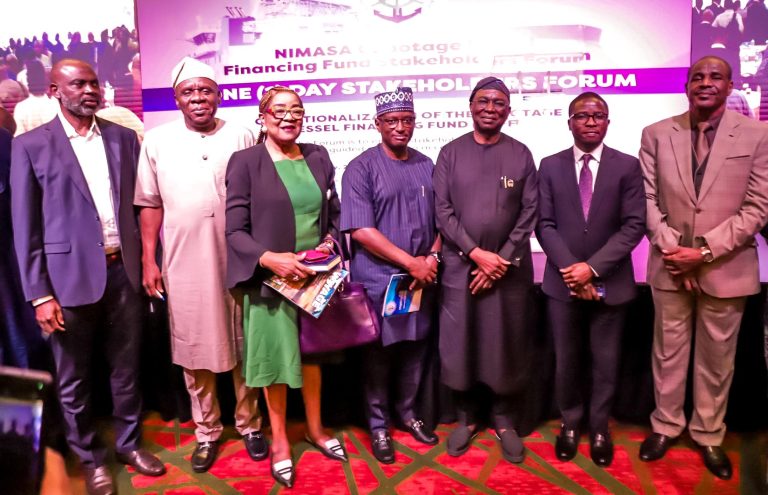- As Finance ministry contradicts Adeosun, says Nigeria’ll continue to borrow
Major oil companies recorded price growth on the Nigerian Stock Exchange (NSE) on Thursday, to sustain market recovery for the fourth consecutive trading day.
Mobil Nigeria posted the highest price gain, leading the gainers’ pack with N22.45, to close at N259 per share.
Seplat followed with a gain of N5 to close at N475 and Forte Oil appreciated by N3.50, to close at N53.50 per share.
Guinness increased by N3 to close at N53.50 and Lafarge Africa grew by N2.01 to close at N52 per share.
Consequently, the market capitalisation appreciated further by N89 billion to close at N11.458 trillion, against the N11.369 trillion achieved on Wednesday.
In the same vein, the All-Share Index inched 265.28 points or 0.80 per cent to close at 33,246.91, compared with the 32,981.63 posted on Wednesday.
Market watchers attributed the upward momentum to investors anticipation that second quarter results would likely beat market expectations.
They stated that investors’ anticipation of a further drop in inflation rate on positive economic indices contributed to the rally.
On the other hand, Nigerian Breweries recorded the highest loss during the day, declining by N1.47, to close at N153.70 per share.
UACN trailed with a loss of 42k to close at N16.58 and NCR dropped by 38k to close at N7.33 per share.
Champion Breweries was down by 18k to close at N2.39, while Boc Gases declined by 16k to close at N3.14 per share.
The volume of shares traded closed lower, as investors bought and sold 288.86 million shares worth N3.82 billion achieved in 3,631 deals.
This was in contrast with a turnover of 1.41 billion shares valued at N5.12 billion, exchanged in 69 deals on Wednesday.
United Bank for Africa was the most active stock in the banking subsector, accounting for 114.47 million shares valued at N1.03 billion.
Guaranty Trust Bank followed with an account of 23.92 million shares worth N871.51 million, while Niger Insurance traded 17.99 million shares valued at N8.99 million.
Zenith International Bank sold 17.35 million shares worth N382.82 million and Access Bank exchanged 16.54 million shares valued at N161.48 million.
In the meantime, the Ministry of Finance on Thursday said that the Federal Government would continue to borrow from foreign and domestic financial institutions to fund its programmes.
The ministry stated this in a statement issued on Thursday by the Director of Information, Mr. Salisu Dambatta.
The statement contradicts the comment of the Minister of Finance, Mrs. Kemi Adeosun, who had stated that the country could not borrow any more to fund its budget and should instead raise money internally.
“We cannot borrow anymore, we just have to generate funds domestically to fund our budget, and mobilise revenue to fund the necessary budget increase,” Adeosun said on Monday.
But Dambatta said in the statement that the government would continue to borrow in line with its three-year borrowing plan.
The statement read in part, “Following recent reports on comments by the Minister of Finance about Nigeria’s debt strategy and ability to borrow, it is important to clarify the position of the minister and the Federal Government.
“Nigeria will continue to borrow. Nothing has changed. The Economic Recovery and Growth Plan provides for an increase in spending over a three-year period, which is reflected in the 2017 budget.
“In 2017, the government is committed to spending N7.44tn, with a projected fiscal deficit of N2.356tn, which will be funded by a combination of domestic and international borrowing.”
He added, “Nigeria’s debt to GDP ratio is low when compared to our contemporaries in Africa and across most of the developed world.
“We have a headroom to borrow and are doing so aggressively in the short to medium term in order to address our infrastructure deficit and to stimulate growth.”
The statement said while the government was working towards diversifying the country’s revenue base, it would borrow but at a reducing proportion.
It added, “It is vital that Nigeria diversifies its revenue base and builds its revenue profile as is projected in the ERGP to ensure that we do not continue to overly rely on debt to fund our budget spending over the long term.
“To build a sustainable economy, we must replace the debt that we are incurring in the short to medium term with strong revenue sources.
“That is why the Ministry of Finance is focused on expanding our tax base, which we are doing with a range of initiatives, which include the Voluntary Asset and Income Declaration Scheme and recruitment of community tax liaison officers to improve tax compliance in the long-term, and we are heavily focused on making government spending more productive and efficient.
“Nigeria cannot rely on debt indefinitely. We must be focused on a future where we can earn enough internal revenue to spend on the projects that will grow our economy. In the short term, though, increased spending, funded by debt, will act as the stimulus we need to grow.”
Additional report from Punch


















